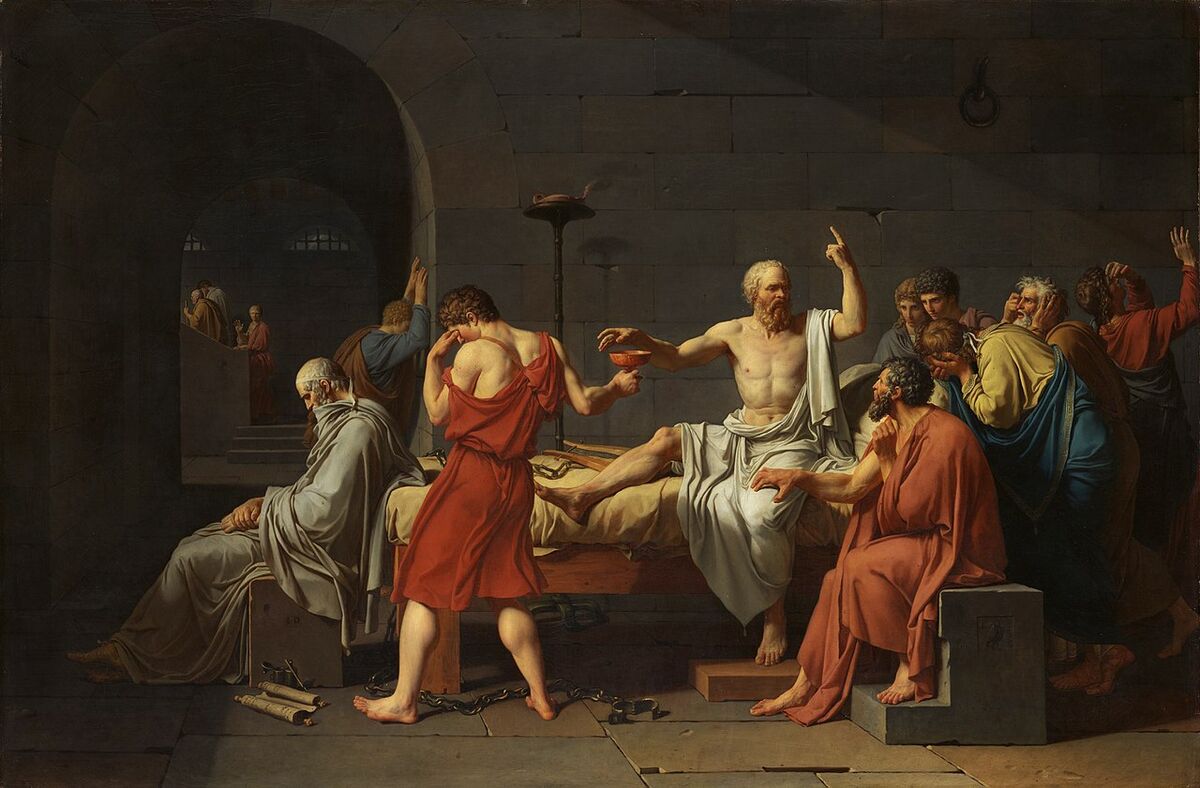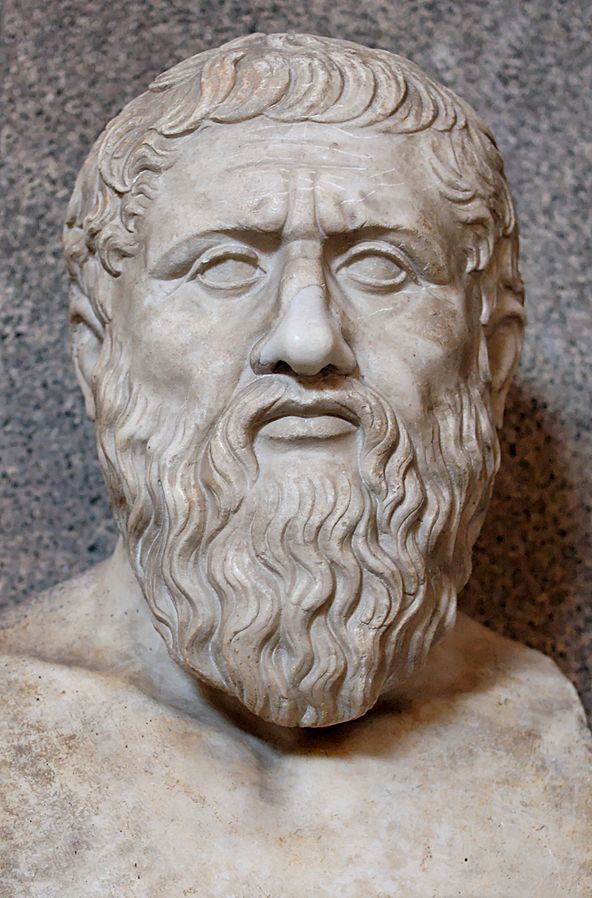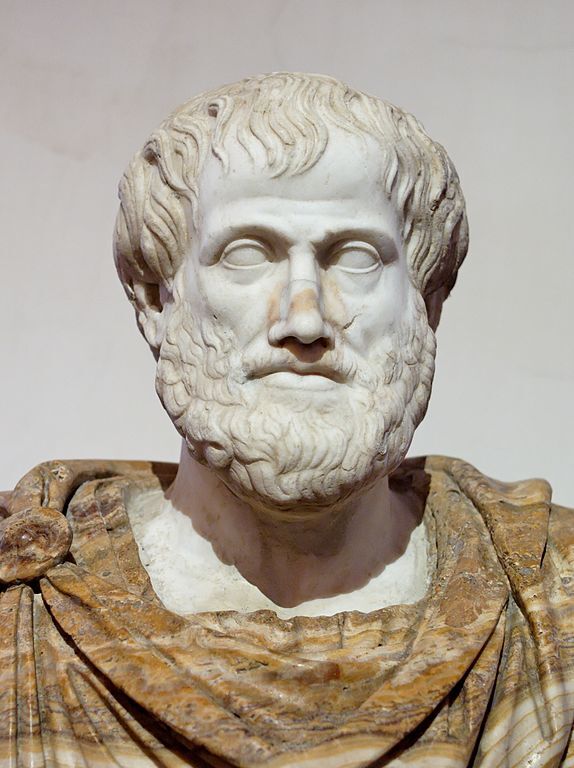The concepts covered in this sheet go beyond those seen in high school. It is intended as a supplement for those who are curious to find out more.
The origin of the word philosophy is Greek and means love of wisdom. Philosophy is an exercise in thought aimed at understanding reality. The philosopher constantly searches for the why of everything and makes sure that his reasoning and thinking are correct.
Ancient philosophy (from the 7th to the 5th century BC) sought virtue, happiness and the means to achieve it by asking the question: "How can we live well?
Socrates, Plato and Aristotle are three Greek philosophers whose thoughts and writings are still studied today.
The father of philosophy was Socrates (born 469 BC). He did not write down his thoughts, but transmitted his knowledge by word of mouth to his many disciples, especially Plato. Socrates divided the world into two parts: human things (which can be understood by reasoning) and divine things (reserved for the gods). His ideas were not shared by everyone, and he was condemned by an assembly of Athenians to drink a deadly poison.

The Death of Socrates (1787) by Jacques-Louis David shows the scene of Socrates' death after he was condemned to death by the Athenians for his non-conformist ideas.
Source : The Death of Socrates [Painting], Met Museum, s.d., Wikimedia Commons, (URL). CC0 1.0
Plato was born in 427 BC and was a disciple of Socrates. He saw a difference between opinion and knowledge. To reach the truth, the mind must learn mathematics, dialectics, ethics and politics. Throughout his life, Plato wrote works called Dialogues. He shared his thoughts through dialogues between different people. The Republic is one of the works in the Dialogues series. In it, Plato portrayed Socrates trying to define the term justice and reflecting on how to avoid corruption in public affairs.

Source : Bust of Platon[Photography], Nguyen, M-L., 2006, Wikimedia Commons, (URL). CC0 1.0
Aristotle was born in 384 BC and was a disciple of Plato. Unlike Socrates, Aristotle wrote extensively. For Aristotle, the primary aim of the individual is to do good. The supreme good is happiness. Moreover, he believed that happiness does not come from accumulating material things; a happy man needs nothing and no one.

Bust of Aristotle (330 BC) by Lysippos.
Source : Bust of Aristotle [Photograpy], Jastrow, 2006, Wikimedia Commons, (URL). CC0 1.0
Jastrow. (2006). Buste d’Aristote [Photographie]. Wikimedia Commons. https://commons.wikimedia.org/wiki/File:Aristotle_Altemps_Inv8575.jpg
Met Museum. (s.d.). La mort de Socrate [Peinture]. Wikimedia Commons. https://commons.wikimedia.org/wiki/File:David_-_The_Death_of_Socrates.jpg
Nguyen, M-L. (2006). Buste de Platon [Photographie]. Wikimedia Commons. https://commons.wikimedia.org/wiki/File:Plato_Pio-Clemetino_Inv305.jpg